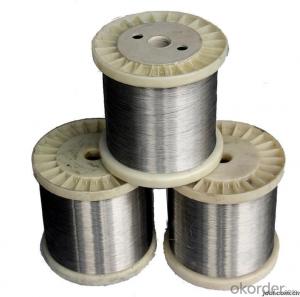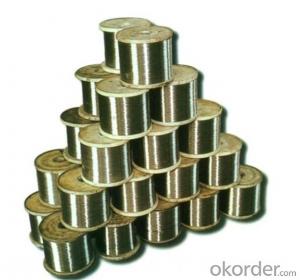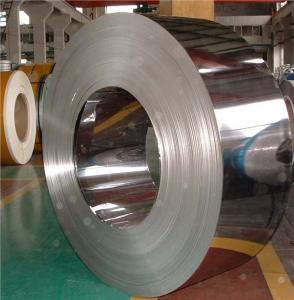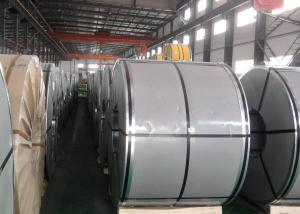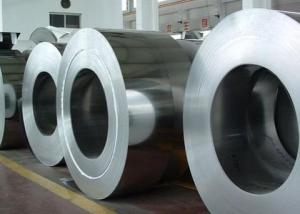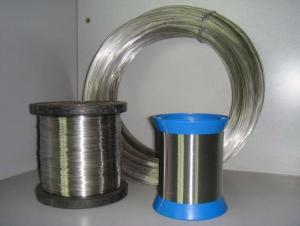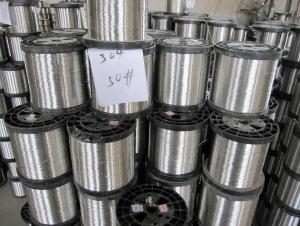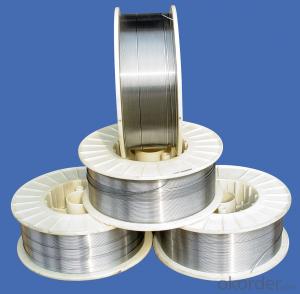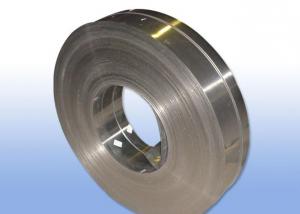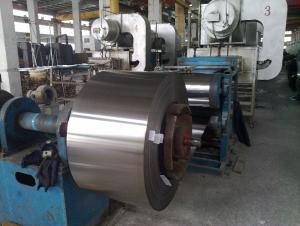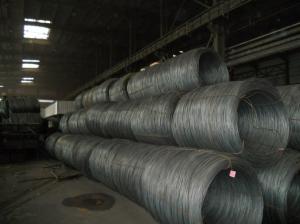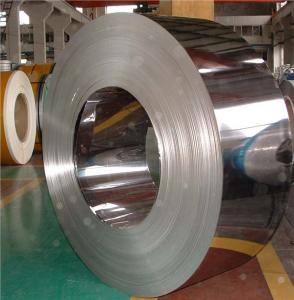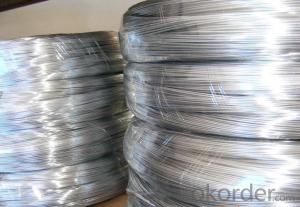stainless steel wire rope for building industry
- Loading Port:
- Qingdao
- Payment Terms:
- TT OR LC
- Min Order Qty:
- 1 m.t.
- Supply Capability:
- 1000 m.t./month
OKorder Service Pledge
Quality Product, Order Online Tracking, Timely Delivery
OKorder Financial Service
Credit Rating, Credit Services, Credit Purchasing
You Might Also Like
hot selling 8x19 stainless steel wire rope
1:Description
| Product Detail | |
| Wire diameter | 0.03mm-2.0mm |
| Grade | 200 series,300 series,400 series |
| Standard | ASTM,EN. DIN,JIS |
| Surface | Bright,Cloudy,Plain, Black, as your request |
| Type | Spring, Welded,Tig,Migetc soft and hard |
| Tensile Strength | 630N/mm2 —900N/mm2 |
| Production Process |
|
| Packing | Plastic film inside and woven bag or hession cloth outside ,25kg/50kg each coil ,25ton/20'' FCL |
| Features |
|
- Q:Is stainless steel wire suitable for wire EDM cutting?
- Wire EDM cutting is a precision machining process that utilizes electrically charged wire to cut through different materials, such as stainless steel. Stainless steel wire, which possesses high strength, durability, and corrosion resistance, is frequently employed in wire EDM cutting. It effectively cuts through thick stainless steel with great precision and accuracy. Moreover, stainless steel wire has exceptional thermal conductivity, aiding in temperature control during the EDM process to prevent any distortion or warping of the workpiece. In conclusion, stainless steel wire is an appropriate option for wire EDM cutting applications involving stainless steel materials.
- Q:What are the different types of stainless steel wire rope ferrules?
- There are several different types of stainless steel wire rope ferrules available in the market. These ferrules are specifically designed to secure wire rope ends and provide a strong and reliable connection. 1. Standard Ferrules: These are the most common type of wire rope ferrules and are used for general applications. They are made from stainless steel and have a simple design, consisting of a cylindrical shape with a hole in the center to pass the wire rope through. Standard ferrules are known for their ease of installation and cost-effectiveness. 2. Heavy-Duty Ferrules: As the name suggests, heavy-duty ferrules are designed for high-load applications where extra strength and durability are required. These ferrules are made from thicker stainless steel material and have a larger diameter, allowing them to handle heavier loads without compromising the integrity of the wire rope connection. 3. Swageless Ferrules: Swageless ferrules are a popular choice for applications where a permanent connection is not desired. Instead of using a swaging tool to compress the ferrule onto the wire rope, these ferrules utilize an innovative mechanical design that allows for easy installation and removal. Swageless ferrules are commonly used in marine and architectural applications. 4. Nicopress Ferrules: Nicopress ferrules, also known as compression sleeves, are a type of stainless steel ferrules that are specifically designed for use with stainless steel wire rope. They are made from a special alloy that provides excellent corrosion resistance and strength. Nicopress ferrules are typically used in critical applications where reliability and performance are paramount, such as in aviation and aerospace industries. 5. Copper Ferrules: Although not made from stainless steel, copper ferrules are worth mentioning as they are commonly used in certain applications. Copper ferrules are known for their excellent conductivity and are often used in electrical and grounding applications where a secure connection is required. Overall, the choice of stainless steel wire rope ferrules depends on the specific application and load requirements. It is essential to consider factors such as load capacity, corrosion resistance, ease of installation, and budget when selecting the appropriate ferrule type.
- Q:Can stainless steel wire be used for making wire traps?
- Certainly! Wire traps can indeed be made using stainless steel wire. This material, known for its strength and durability, is highly capable of enduring even the harshest outdoor conditions. Thanks to its resistance to rust and corrosion, it is well-suited for constructing traps that will be exposed to moisture. Moreover, the flexibility and ease of manipulation of stainless steel wire enable the crafting of intricate trap designs.
- Q:Can stainless steel wire be used for springs in the transportation industry?
- Indeed, springs in the transportation industry can utilize stainless steel wire. With its exceptional durability and resistance to corrosion, stainless steel proves itself as a fitting material for a plethora of applications in transportation, including springs. Demonstrating resilience amidst harsh conditions, stainless steel springs perform reliably over an extended duration. These springs exhibit remarkable resistance to rust, chemicals, and extreme temperatures, all of which are commonly encountered challenges in transportation settings. Moreover, stainless steel springs effectively bear heavy loads, rendering them suitable for a wide range of vehicles, such as cars, trucks, trains, and aircraft. Their impressive strength-to-weight ratio enables efficient and dependable suspension systems, thereby ensuring smooth and secure transportation operations. In conclusion, owing to their durability, resistance to corrosion, and ability to withstand demanding conditions, stainless steel wire springs emerge as a superb choice for the transportation industry.
- Q:What is the electrical conductivity of stainless steel wire?
- The electrical conductivity of stainless steel wire may differ based on its composition and properties. In comparison to metals like copper or aluminum, stainless steel is generally acknowledged to possess lower electrical conductivity. This is predominantly attributed to its heightened resistance to the passage of electric current. Nevertheless, stainless steel wire retains the ability to conduct electricity to a certain degree, rendering it suitable for diverse applications where electrical conductivity is not of paramount importance.
- Q:How are stainless steel wire hangers used in clothing storage?
- Various purposes are served by the commonly used stainless steel wire hangers in clothing storage. These hangers are renowned for their durability, strength, and resistance to rust, making them an ideal choice for organizing and hanging clothes. One of the primary advantages of stainless steel wire hangers is their ability to support heavy garments without bending or warping. They are perfect for hanging coats, jackets, and other heavy clothing items. The sturdy construction ensures that the hangers maintain their shape and prevent any damage to the garments. In addition to their strength, stainless steel wire hangers are also space-efficient. Their slim design allows for hanging more clothing in a small area, maximizing storage space in closets or wardrobes. This proves to be especially useful when closet space is limited. Another benefit of using stainless steel wire hangers is their versatility. These hangers often come with hooks or notches, enabling users to hang skirts, pants, or scarves. Some wire hangers also feature clips or adjustable arms, making them suitable for hanging garments that require extra support, like dresses or delicate fabrics. Furthermore, stainless steel wire hangers are resistant to rust and corrosion, ensuring their long-lasting quality. Unlike traditional wire hangers that may leave rust stains on clothes, stainless steel variants do not pose this risk. They provide a reliable and durable solution for clothing storage. Overall, stainless steel wire hangers are a practical and efficient choice for organizing clothing. Their durability, space-saving design, versatility, and resistance to rust make them an excellent option to keep clothes organized and in good condition.
- Q:Can stainless steel wire be used for marine applications?
- Indeed, stainless steel wire is suitable for marine applications. Due to its resistance to corrosion, stainless steel is an optimal material for use in marine environments that are frequently exposed to saltwater, moisture, and other unforgiving conditions. It finds extensive use in a variety of marine applications such as rigging, wire rope, fishing nets, and marine electronics. Thanks to its exceptional resistance to rust, corrosion, and staining, stainless steel wire guarantees durability and longevity in marine settings. Furthermore, stainless steel possesses strength, reliability, and the ability to withstand high levels of tension and stress, making it an appropriate choice for marine applications that demand robustness and endurance.
- Q:Can stainless steel wire be used for making wire plant supports?
- Yes, stainless steel wire can be used for making wire plant supports. Stainless steel wire is known for its durability and resistance to corrosion, which makes it an excellent choice for outdoor applications such as supporting plants. It is strong enough to hold the weight of the plants and can withstand various weather conditions without rusting or deteriorating. Additionally, stainless steel wire is malleable and easy to work with, allowing it to be shaped into various support structures to accommodate different types of plants. Overall, using stainless steel wire for making wire plant supports ensures longevity and reliability for your garden or indoor plants.
- Q:Can stainless steel wire fences be used for security?
- Yes, stainless steel wire fences can indeed be used for security purposes. Stainless steel is a highly durable and strong material that is resistant to corrosion and weather damage. This makes it an excellent choice for fences used in security applications as it can withstand harsh environmental conditions and maintain its structural integrity over time. Stainless steel wire fences are known for their high strength-to-weight ratio, making them difficult to breach or cut through. This makes them an effective deterrent against unauthorized access and potential intruders. Additionally, the tight mesh pattern of stainless steel wire fences makes it difficult for individuals to climb over or squeeze through the fence, further enhancing its security capabilities. Moreover, stainless steel wire fences can be designed with various heights and configurations to suit specific security requirements. They can be installed as perimeter fences around residential properties, commercial buildings, industrial sites, or even high-security facilities like prisons or military installations. The versatility of stainless steel wire fences allows for customization to meet specific security needs. Furthermore, stainless steel wire fences can be equipped with additional security features such as barbed wire, electric fencing, or CCTV systems to further enhance their effectiveness. These added layers of security make it even more challenging for potential intruders to breach the fence and provide an extra level of protection. In summary, stainless steel wire fences are a reliable and robust option for security purposes. Their durability, strength, and resistance to corrosion make them an excellent choice for long-term security solutions. Whether it is for residential, commercial, or high-security applications, stainless steel wire fences provide a strong physical barrier that can deter and prevent unauthorized access.
- Q:What are the different types of stainless steel wire used in musical instruments?
- Musical instruments rely on various stainless steel wire types for their construction. Among them, the widely used 304 stainless steel offers exceptional corrosion resistance and durability. This wire finds its application in guitar strings, piano wires, and certain brass instrument valves. Another stainless steel wire option for musical instruments is the 316 stainless steel. This alloy boasts a higher proportion of nickel and molybdenum, which significantly enhances its resistance to corrosion, particularly in harsh environments like marine settings. Wind instruments such as saxophones, trumpets, and trombones commonly utilize 316 stainless steel wire. Furthermore, specialized stainless steel wires cater to specific musical instruments. For instance, piano strings often incorporate 17-7 PH stainless steel wire due to its superior tensile strength and corrosion resistance. This wire contributes to the production of a resonant and rich sound in pianos. In summary, the selection of stainless steel wire for musical instruments depends on multiple factors such as the instrument type, desired sound quality, and environmental conditions. Manufacturers diligently choose the appropriate stainless steel wire type to ensure optimal performance, durability, and corrosion resistance for each musical instrument.
1. Manufacturer Overview |
|
|---|---|
| Location | |
| Year Established | |
| Annual Output Value | |
| Main Markets | |
| Company Certifications | |
2. Manufacturer Certificates |
|
|---|---|
| a) Certification Name | |
| Range | |
| Reference | |
| Validity Period | |
3. Manufacturer Capability |
|
|---|---|
| a)Trade Capacity | |
| Nearest Port | |
| Export Percentage | |
| No.of Employees in Trade Department | |
| Language Spoken: | |
| b)Factory Information | |
| Factory Size: | |
| No. of Production Lines | |
| Contract Manufacturing | |
| Product Price Range | |
Send your message to us
stainless steel wire rope for building industry
- Loading Port:
- Qingdao
- Payment Terms:
- TT OR LC
- Min Order Qty:
- 1 m.t.
- Supply Capability:
- 1000 m.t./month
OKorder Service Pledge
Quality Product, Order Online Tracking, Timely Delivery
OKorder Financial Service
Credit Rating, Credit Services, Credit Purchasing
Similar products
New products
Hot products
Related keywords
